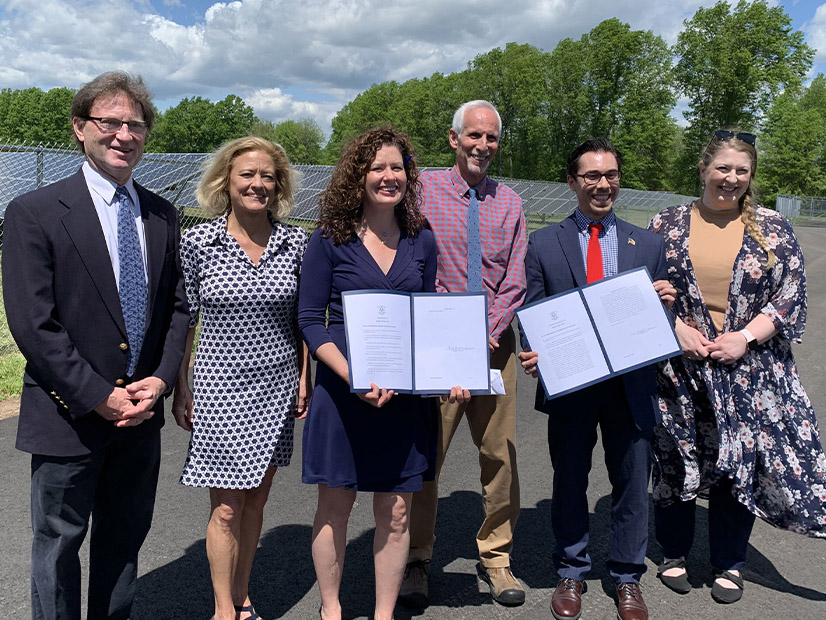
Connecticut Department of Energy and Environmental Protection Commissioner Katie Dykes kicked off a new phase of work Wednesday for the Governor’s Council on Climate Change.
“We want to be flexible and encourage working groups to reconvene, refresh their membership … and have the chance for dialogue to see what flows out of that,” Dykes said during the council’s first meeting of the year.
The state has made significant progress on recommendations in the council’s phase one report released in January 2021, but the council has “a lot more to do,” she said.
During the meeting, Dykes highlighted recent legislative successes that stem from the council’s report, including passage in May of an act establishing a goal of 100% zero-carbon electricity by 2040 and an act that expands programs for distributed energy resources.
Gov. Ned Lamont signed an executive order in December that extended the council’s responsibilities to include reporting by the end of the year on mitigation and adaptation and resilience progress.
Six working groups, aligned under a mitigation subcommittee and an adaptation and resilience subcommittee, will convene with a focus on cross-cutting themes that the council identified during the phase-one report development. Those themes include environmental justice and leveraging Infrastructure Investment and Jobs Act funding.
The council will select subcommittee and working group members this month, and the groups will meet twice before October. Those groups will present the results of their meetings to the full council in December, and the council will make a final progress report to the governor in January, according to Rebecca French, director of the Office of Climate Planning at DEEP.
“This is not a one year and done process,” French said, adding that the groups will continue discussions “in 2023 and beyond.”
The “spirit” of the council’s work this year is to reinvigorate the relationships that members built while developing the phase one report, Dykes said. Working groups will have an opportunity to take an in-depth look at what is happening in their focus areas and “give people a sense of where to plug in and get involved,” she said. They also will look at next steps for policies that can support objectives in the phase one report.
“We’re eager to see what comes out of this activity over the next couple months,” Dykes said.


